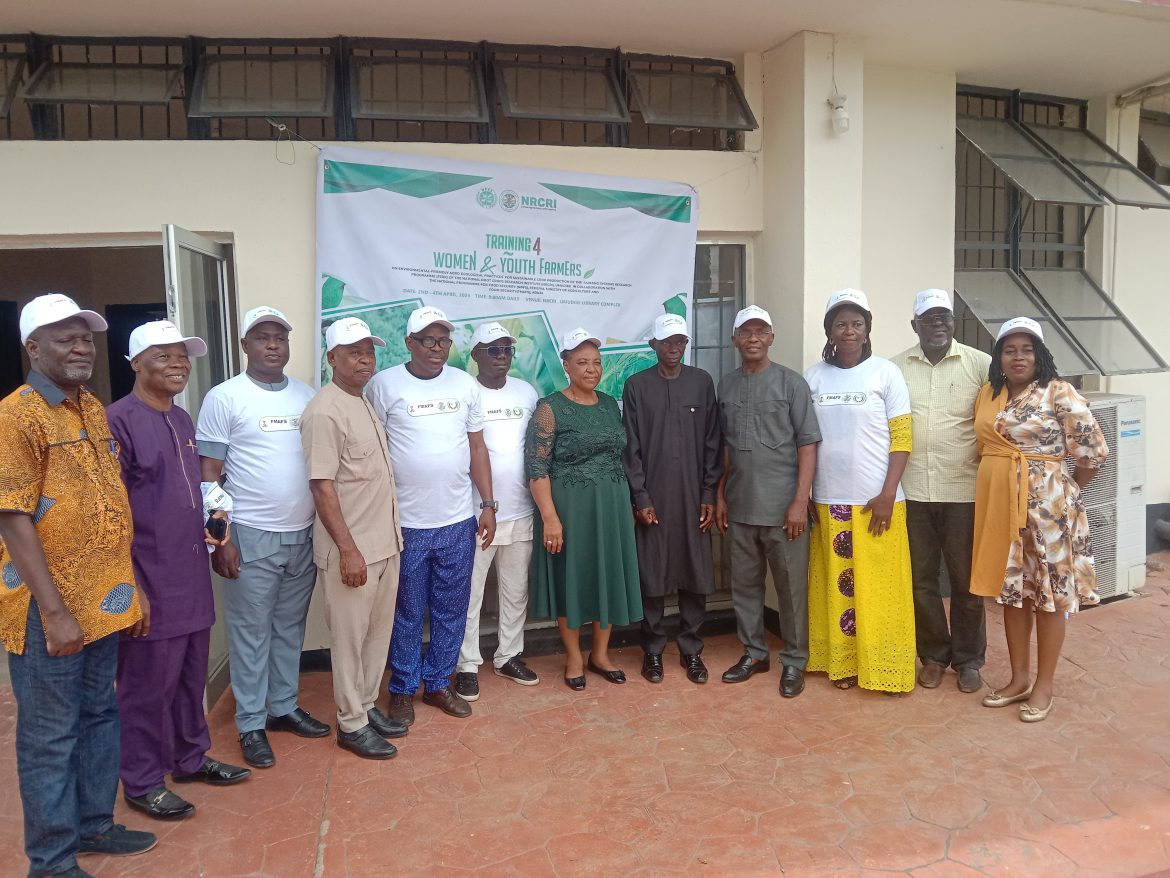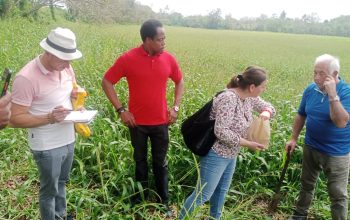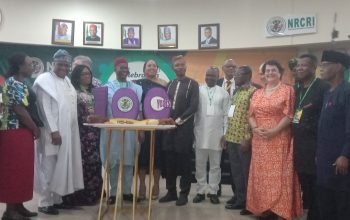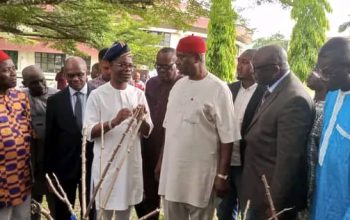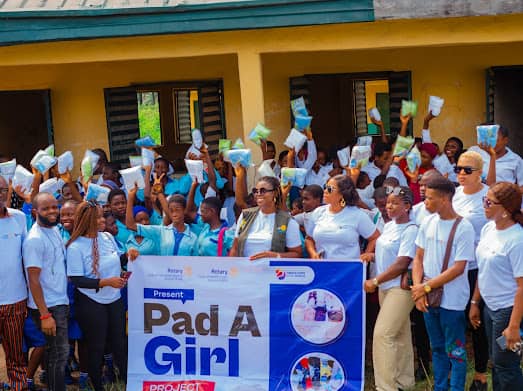Abia State commissioner for Agriculture, Professor Monica Ironkwe has advised people to take advantage of their available lands to cultivate crops to mitigate hunger in the land.
Professor Ironkwe gave the advice during a three day training for women and youth Farmers on Environmental friendly Agro-Ecological Pratices for Sustainable Crop production by the farming Systems Research Programme (FSRP) of the National Root Crops Research Institute Umudike in collaboration with the National Programme for Food Security (NPFS), Federal Ministry of Agriculture and Food Security (FMAFS), Abuja held at Research Institute Umudike.
She told the participants that the Economic hardship in Nigeria calls for more efforts for people to embrace farming and maintained that the state government is trying its best to ensure genuine farmers get genuine fertilizer to encourage farmers.
Ironkwe stated that this is the best time to farm and disclosed that farming has assisted her a lot including developed countries.
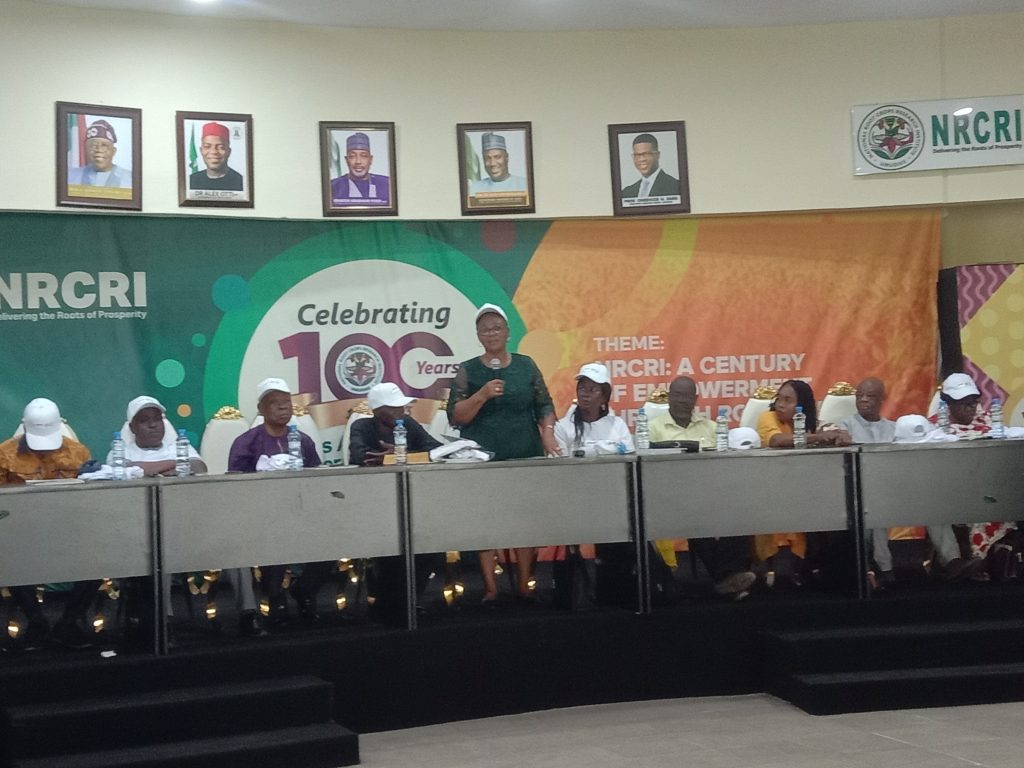
In his speech, the Minister of Agriculture, Abubakar Kyari represented by the National Coordinator of Agroecology, Yerima Sa’idu said the primary objective of the Agroecology Programme is to support farming families to boost their staple food production capacity on an environmentally sustainable basis. He said this is pursued through partnerships and collaborations with relevant stakeholder institutions and actors, including Non-Governmental organizations and Farmer organizations.
His words, “Towards supporting farming households in boosting their food security as well as ensuring national food sufficiency, the Federal Ministry of Agriculture and Food Security (FMA&FS) through National Programme for Food Security (NPFS) is collaborating with Institute for Root crop Research to build the capacity of farmers (with greater focus on women and youth) in the South-East Agroecological Zone of Nigeria on the environmentally sustainable Agroecological practices that could support farmers in the zone to enhance staple food production.
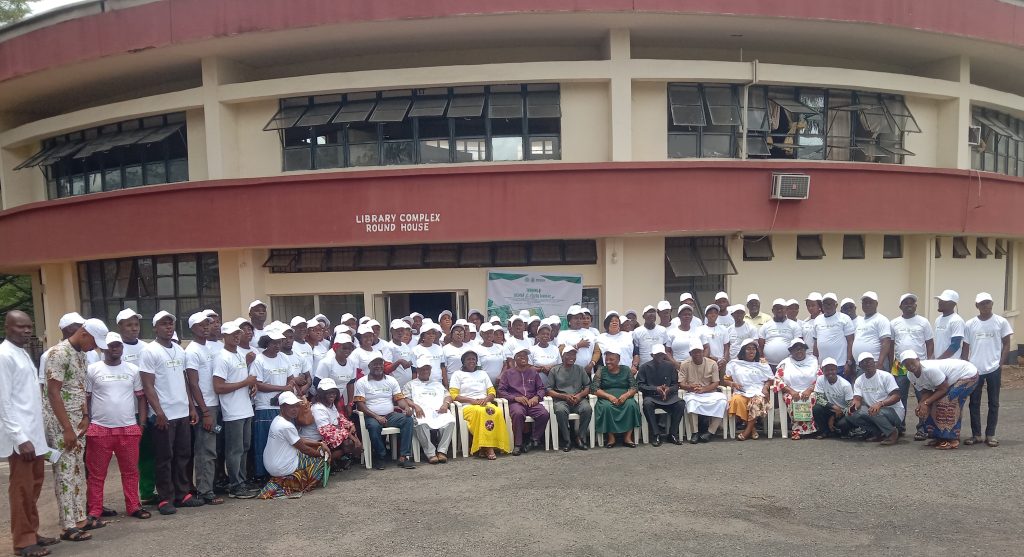
According to the minister, it is expected that the knowledge gained by participants of this training will have a trickle-down effect on production practices across the zone. This he maintained should be evident in the output of food crops in the coming years, and the conservation of our ecology including soil, vegetation, air and water bodies.
He added that “It is important to emphasize that at the crux of Agroecology Programme and Practices is the conservation of our natural environment. Thus, trainees of this programme should apply the skills and practices they are thought here on their everyday agricultural life to mitigate the negative implication of climate change”.
Kyari therefore, encouraged them all to pay keen attention to the lines of thought being presented in this course so that they will have robust take home at the end. He said the Programme is aimed at contributing to increasing productivity and agro-sylvo-postural and fisheries production through diversified and sustainable production systems, and reduces post harvest production losses. “The Agroecology Programme is managed by ECOWAS and coordinated by the Regional Agency for Agriculture and Food (ARAA) Togo — Lome.
While welcoming his guests, the Executive Director, National Root Crops Research Institute Umudike, Professor Chiedozie Egesi represented by the director Research Outreach, Dr E Okwuruchi Mbanaso emphasized that Root and tuber Crops are becoming pivotal in food security. He charged the participants to take the training very seriously to enhance their livelihood and advised them to make good connections in case they need assistance.
The South East Coordinator of Agroecology programme NRCRI, Dr Innocent Onyekwere said the objectives of the training was to bring together relevant stakeholders in crop production farmers, to learn how to produce organic fertilizer using Eco-Friendly Agriculture Techniques for sustainable crop production, to ensure environmental stability among others.
He explained that ecological friendly technology helps to protect the environment and prevent climate change. Dr Onyekwere added that recycling waste into organic manure also help to keep the environment safe.
According to him, it has been observed that the organic manure or fertilizer improved environmental condition, improved soil structure and porosity, increased the moisture infiltration and permeability, reduces erosion and runoff, reduces organic matter, encourages vigorous growth etc.
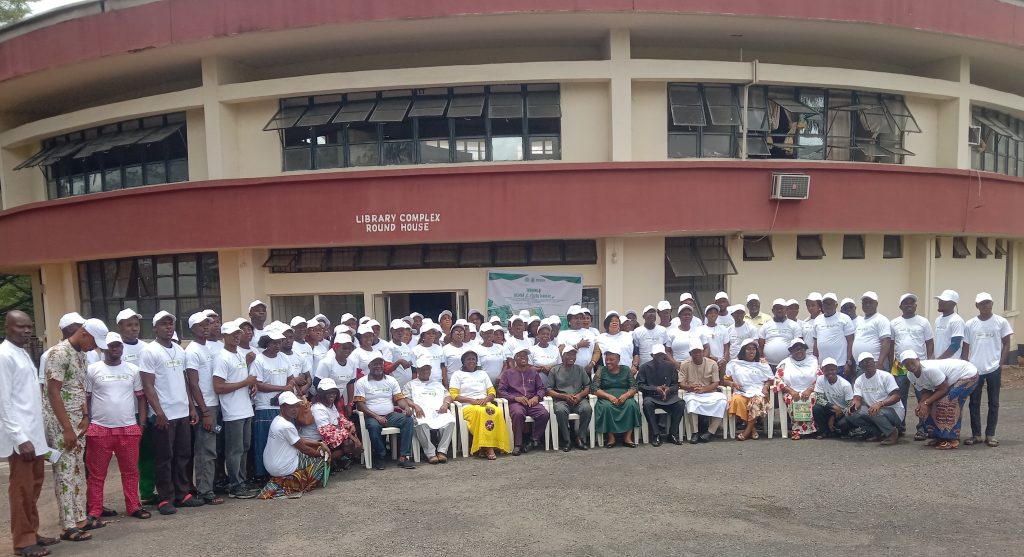
However, there were other lectures which included: Organic farming: an Agro-ecological practice for sustainable crop production/questions and answers delivered by Dr. A. O. Ano,
Ecological Agricultural practices for sustainable crop production using Tillage/questions and answers by Dr. C.C. Nwokocha, and
Cover cropping and crop rotation; Ecological Agricultural practices for sustainable crop production/questions and answers by Dr. C. N. Ebeniro.
Others were: Ecological Agricultural practices for sustainable crop production using Biochar Technology/questions and answers by Prof C. N. Ehisianya,
Economics of sustainable crop production under Ecological Agricultural practices/questions and answers by Dr. B.C. Okoye,
Ecological Agricultural practices for sustainable crop production
Using Biochar Technology by Prof. M. I. Onwuka and
Production of Organic Soil Amendments from sustainable plant sources using Ecological friendly practices for sustainable crop production/questions and answers by Dr. Innocent Onyekwere.

